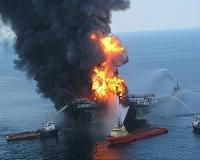 |
Algiers, Algeria (UPI) May 12, 2010 Construction of a 2,565-mile natural gas pipeline from Nigeria to Algeria to supply Europe, and help break Russia's stranglehold as its prime source of gas, has been repeatedly delayed. Much of this is due to political rivalries between Nigeria, Niger, through which the pipeline will run on its way north, and Algeria. But security has also become a big problem for the Trans-Saharan Gas Pipeline project, which Nigeria's former Petroleum Minister Rilwanu Lukman declared was "a major milestone in the commercialization of the huge endowment of natural gas resources" when he signed an agreement for the pipeline last July. The possibility of renewed conflict in Nigeria's main energy fields, where militants have threatened to attack the proposed pipeline, warfare between Niger's government and nomadic Touareg rebels, and jihadist marauders in Algeria all pose threats that could cause major disruption for the TSGP. Protecting the $20 billion project will be a major task. The first section of the pipeline will run for 664 miles across Nigeria from its starting point in the Warri region. Niger's portion will cover 523 miles, with Algeria having the longest stretch at 1,440 miles, mainly across the desert where al-Qaida of the Islamic Maghreb operates. Much of that territory is considered outside government control. Algeria and several other states in northern Africa, including Niger, announced in April they plan to set up a joint military command to coordinate operations to counter the growing regional threat posed by AQIM. The United States and its Western allies have warned that unless the regional governments work together, the jihadists could turn the Sahara into a safe haven for terrorists from which to launch large-scale attacks. Osama bin Laden and his chief lieutenants have repeatedly called for jihad against the global energy industry, the lifeblood of the Western democracies. Meantime, if all goes to plan, the 48-inch-56-inch pipeline is to be operational by 2015. It is expected to carry 30 billion cubic meters of natural gas a year to Europe through undersea pipelines from the gas hubs at el Kala and Beni Safi on Algeria's Mediterranean coast. Since the TSGP agreement was signed in Abuja, Nigeria's administrative capital, in July 2009, the project has been hit by political problems. In November, Algeria and Nigeria proposed a project using existing infrastructure between Nigeria's delta region, Kano in northern Nigeria, and Hassi R'Mei on the Algerian coast, to transport TSGP's gas. Niger objected strenuously and has demanded an independent study. Algeria's state-run energy company, Sonatrach, voiced doubts about whether Nigeria has the enough reserves of natural gas for the TSGP. Nigeria is planning to build plants to produce liquefied natural gas, which would diminish the amounts available for the planned pipeline. Nigeria has gas reserves estimated at 180 trillion cubic feet, the seventh largest in the world. Its LNG company, Nigeria LNG, says it already provides 10 percent of world supply, much of it to Europe and North America. But the West African state hasn't been able to develop its gas industry because of a lack of funds and a clearly defined regulatory environment. On top of all this, tension between Russia and the European Union has complicated the TSGP project. Moscow is anxious to ensure that it retains control of Europe's natural gas supplies, particularly since European consumption is expected to surge by 50 percent by 2020. If the EU cannot diversify its sources of supply by then, Russia will be providing some 70 percent of the Europe's gas. The pipeline partners have met with major international energy companies to help provide investment. France's Total and Royal Dutch Shell have expressed interest. However, Russia's energy giant, Gazprom, signed a memorandum of understanding with the Nigerians in June 2009 to invest $2.5 billion in the country's energy industry -- and to build part of the first stretch of the pipeline. Some analysts see this as a Russian attempt to impede the TSGP, which would allow Moscow to maintain its grip on Europe's gas supplies.
Share This Article With Planet Earth
Related Links Powering The World in the 21st Century at Energy-Daily.com
 For crew of doomed US rig, a night of flames and terror
For crew of doomed US rig, a night of flames and terrorNew Orleans, Louisiana (AFP) May 11, 2010 The nightmare began with a geyser of mud and water that shot 300 feet (100 m) into the air. Before anyone could react, gas from deep below the sea found a spark and the Deepwater Horizon was ablaze. One explosion, then a second, shook the offshore drilling rig. Louder than a jet, louder than a bomb, they threw sleeping workers from their beds and tossed men up into the air like grains of san ... read more |
|
| The content herein, unless otherwise known to be public domain, are Copyright 1995-2010 - SpaceDaily. AFP and UPI Wire Stories are copyright Agence France-Presse and United Press International. ESA Portal Reports are copyright European Space Agency. All NASA sourced material is public domain. Additional copyrights may apply in whole or part to other bona fide parties. Advertising does not imply endorsement,agreement or approval of any opinions, statements or information provided by SpaceDaily on any Web page published or hosted by SpaceDaily. Privacy Statement |